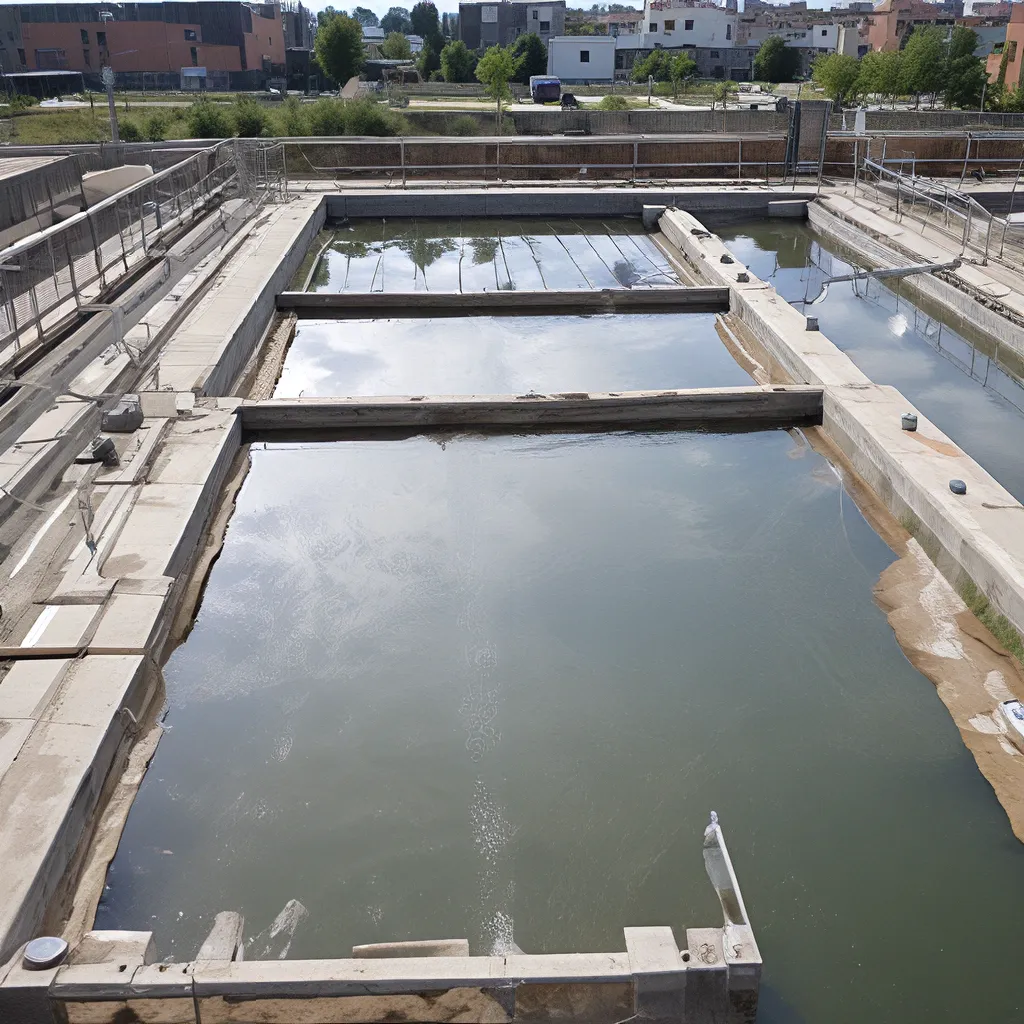
As an environmental enthusiast, I’ve always been fascinated by the incredible feats of engineering and innovation happening in the world of wastewater treatment. And let me tell you, the advancements in membrane technologies are nothing short of remarkable. These cutting-edge solutions are revolutionizing the way we tackle the pressing issue of urban wastewater management.
The Challenges of Urban Wastewater
Let’s start by acknowledging the sheer scale of the problem we’re facing. Our cities produce vast amounts of wastewater, filled with a complex cocktail of contaminants and pollutants. From household detergents to industrial effluents, the wastewater stream is a veritable soup of chemicals, heavy metals, and organic matter. Trying to purify and recycle this water is no easy feat, but it’s a crucial step in building a more sustainable future.
Conventional wastewater treatment plants have long relied on a combination of physical, chemical, and biological processes to remove these impurities. But as our urban centers continue to grow and our water demands escalate, these traditional methods are simply not enough. We need innovative solutions that can handle higher volumes, remove even the most stubborn contaminants, and do so in a cost-effective and energy-efficient manner.
The Rise of Membrane Technologies
Enter the world of membrane technologies – a game-changing approach that’s transforming the landscape of urban wastewater treatment. At its core, membrane filtration utilizes semi-permeable barriers to selectively separate and purify water from the myriad of contaminants it contains.
These membranes come in a variety of shapes, sizes, and materials, each tailored to target specific pollutants. From microfiltration to reverse osmosis, the level of filtration can be precisely tuned to remove everything from suspended solids and bacteria to dissolved salts and organic molecules.
One of the standout advantages of membrane technologies is their flexibility and scalability. They can be seamlessly integrated into existing wastewater treatment plants, allowing for a gradual and cost-effective upgrade of infrastructure. And as the demand for clean water grows, these modular systems can be easily expanded to meet the increasing needs of our cities.
Unlocking the Potential of Membrane Bioreactors
But the true power of membrane technologies lies in their integration with biological processes – a marriage known as membrane bioreactors (MBRs). In these advanced systems, the membrane filtration component is combined with a bioreactor, where microorganisms break down the organic matter in the wastewater.
The result is a highly efficient and compact treatment process that can remove an astounding array of contaminants, from nutrients and heavy metals to pharmaceuticals and microplastics. The membrane’s ability to retain even the smallest of particles means that the treated water is of exceptionally high quality, making it suitable for a wide range of water reuse applications, from agricultural irrigation to industrial processes and even potable water supply.
What’s more, the integration of membrane technologies with biological processes opens up exciting avenues for resource recovery. The concentrated waste streams generated by these systems can be further processed to extract valuable resources, such as nutrients, biofuels, and even clean energy.
Overcoming Challenges and Driving Innovation
Of course, the adoption of membrane technologies is not without its challenges. Membrane fouling, energy consumption, and the management of concentrate streams are just a few of the issues that researchers and engineers are actively tackling.
But the progress we’ve seen in recent years is truly remarkable. Advances in membrane materials, module design, and process optimization are continuously pushing the boundaries of what’s possible. And with the growing recognition of the importance of water sustainability, the demand for these innovative solutions is only going to increase.
At Alpha Wastewater, we’re at the forefront of this exciting technological revolution. Our team of experts is constantly exploring new ways to integrate membrane technologies into urban wastewater treatment, ensuring that our cities have access to reliable, cost-effective, and environmentally-friendly water management solutions.
As I reflect on the incredible potential of these membrane-based systems, I can’t help but feel a sense of optimism about the future. By harnessing the power of innovation, we can transform the way we manage our precious water resources, paving the way for a more sustainable and resilient urban landscape.
So, the next time you flush your toilet or turn on your tap, take a moment to appreciate the remarkable engineering feats happening behind the scenes. The future of urban wastewater treatment is bright, and membrane technologies are leading the charge.